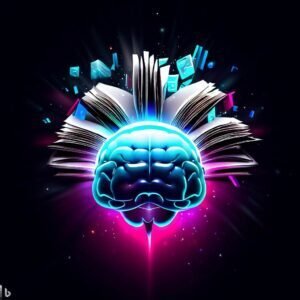Self-Awareness: The Impact of Self-Awareness on Personal Development
Introduction
Self-awareness is a crucial trait that plays a significant role in personal growth. It refers to the ability to understand oneself, including one’s thoughts, emotions, and behaviors. Additionally, self-awareness enables individuals to recognize their strengths and weaknesses, empowering them to make more informed decisions and actively work on their personal development. In this article, we will explore the profound impact of self-awareness on personal growth, using concrete examples and reflections from renowned authors.
The Power of Reflection
The power of reflection is one of the ways in which self-awareness facilitates personal growth. Taking the time to reflect on our experiences, actions, and emotions can provide invaluable insights into our behaviors and thought patterns. This awareness allows us to identify recurring negative patterns that hinder our development and intentionally modify them.
In her book « Daring Greatly, » renowned author Brené Brown emphasizes the importance of reflection in personal development. She asserts that by examining our vulnerabilities and mistakes, we can learn and grow from them, ultimately leading to a more authentic and fulfilling life. For example, a person who reflects on their tendency to avoid difficult conversations may recognize that their fear of conflict limits their personal and professional relationships. This awareness empowers them to address their fear, acquire conflict resolution skills, and cultivate healthier interpersonal relationships.
Emotional Intelligence and Self-Awareness
Another aspect influenced by self-awareness is emotional intelligence, which refers to the ability to recognize and manage one’s own emotions and understand those of others. Self-awareness is the foundation of emotional intelligence.
In his book « Emotional Intelligence: Why It Can Matter More Than IQ, » Daniel Goleman explores the link between self-awareness and personal development. Goleman suggests that individuals with high emotional intelligence are better able to understand their emotions, allowing them to navigate challenging situations effectively and build stronger relationships. For example, a person with a good self-knowledge may recognize that they often feel overwhelmed in stressful situations. With this awareness, they can develop strategies such as deep breathing exercises or mindfulness practices to manage their stress level. This self-awareness enables them to master their emotions and continue to grow personally and professionally.
Identifying and Harnessing Strengths
In addition to recognizing weaknesses, self-knowledge also plays a crucial role in identifying and harnessing strengths. Understanding our unique abilities and talents allows us to focus our energy on areas where we excel, leading to personal growth and fulfillment.
In his book « Authentic Happiness, » psychologist and author Martin Seligman asserts that knowing and utilizing our strengths enables us to lead a more fulfilling life. For example, a person with a keen sense of empathy may discover that they find great joy and fulfillment in helping others. By leveraging this strength, they can steer towards a career as a counselor, where their empathetic nature can have a positive impact on others’ lives. This self-awareness guides them towards personal development by aligning their passions with their actions.
Conclusion
Self-awareness is a catalyst for personal growth and transformation. Through reflection, emotional intelligence, and identifying strengths, individuals can tap into their full potential and lead a more fulfilling life.
We hope you found this article interesting and informative. Thank you for visiting our site, and we encourage you to explore other articles and books available on metamindedition.com. If you have any questions or need further guidance, please don’t hesitate to contact us.





